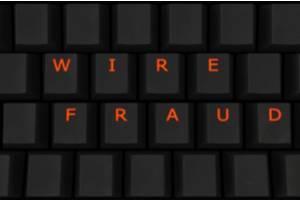Recent Blog Posts
U.S. Spends Billions Each Year to Jail Child Sex Offenders
 Nearly everyone agrees that sex crimes are a serious issue that should be addressed by the criminal justice system. Sexual offenses committed against children can be especially horrific, and around one out of every four girls and one out of every 13 boys experience some form of sexual abuse while they are under the age of 18. However, people may disagree about the best ways to address these issues and protect children against harm. A recent study indicates that the resources the United States puts toward addressing child sexual offenses are more focused on punishing offenders than actually preventing these types of crimes from occurring.
Nearly everyone agrees that sex crimes are a serious issue that should be addressed by the criminal justice system. Sexual offenses committed against children can be especially horrific, and around one out of every four girls and one out of every 13 boys experience some form of sexual abuse while they are under the age of 18. However, people may disagree about the best ways to address these issues and protect children against harm. A recent study indicates that the resources the United States puts toward addressing child sexual offenses are more focused on punishing offenders than actually preventing these types of crimes from occurring.
Money Spent on Incarceration Vastly Outweighs Child Sex Crime Prevention Efforts
The criminal justice system spends a significant amount of money to address child sex offenses, but nearly all of these funds go toward “reactive” efforts that take place after crimes have already been committed. There are currently more than 144,000 people incarcerated in state or federal prisons who have been convicted of sex crimes against children. Most of these offenders are required to serve sentences of at least eight years, and they are also subject to restrictions after being released, such as the requirement to register as sex offenders.
How Can DNA Information in Genetic Databases Lead to Criminal Arrests?
 DNA contains a wealth of information about a person, and due to modern technology, this information can be used for a variety of beneficial purposes. Genetic information can provide information about a person’s health and ensure that they receive the proper medical treatments, and it can be used to establish family connections and provide details about a person’s roots. DNA is also playing an increasingly important role in criminal investigations. Unfortunately, many people do not realize how information stored in genetic databases may be used against them or others, and criminal justice advocates are questioning how storing and sharing this data may affect people’s rights.
DNA contains a wealth of information about a person, and due to modern technology, this information can be used for a variety of beneficial purposes. Genetic information can provide information about a person’s health and ensure that they receive the proper medical treatments, and it can be used to establish family connections and provide details about a person’s roots. DNA is also playing an increasingly important role in criminal investigations. Unfortunately, many people do not realize how information stored in genetic databases may be used against them or others, and criminal justice advocates are questioning how storing and sharing this data may affect people’s rights.
DNA Databases Used in Criminal Investigations
Genetic information is being used in more and more criminal cases. Evidence gathered at a crime scene may be compared to DNA information in a variety of genetic databases to identify potential suspects. While this practice has led to some high-profile arrests, such as the identification of the “Golden State Killer,” it has also led privacy advocates to raise concerns.
Should Juvenile Offenders Receive Protection Against Life Sentences?
 Minors who are charged with criminal offenses will often struggle to protect their rights during the legal process. In many cases, prosecutors will seek harsh sentences, and if a person is convicted, they may be required to spend significant time in prison, and they may also experience multiple types of collateral consequences after being released. Advocates for criminal justice reform are working to address the practices followed by prosecutors, and one issue that has been highlighted recently involves life sentences for minors who are tried as adults for violent crimes.
Minors who are charged with criminal offenses will often struggle to protect their rights during the legal process. In many cases, prosecutors will seek harsh sentences, and if a person is convicted, they may be required to spend significant time in prison, and they may also experience multiple types of collateral consequences after being released. Advocates for criminal justice reform are working to address the practices followed by prosecutors, and one issue that has been highlighted recently involves life sentences for minors who are tried as adults for violent crimes.
Prosecutors Recommend Limits on Life Sentences for Juveniles
Recently, a coalition of prosecutors who work at the federal, state, and local levels suggested that the United States should limit the use of life sentences without parole for juvenile offenders. The group urged Attorney General Merrick Garland to review cases where prosecutors seek these types of sentences and only allow these harsh penalties in cases where a juvenile offender is incapable of rehabilitation. It also suggested that for all other juvenile offenders, sentences should be limited to no more than 30 years.
How Have Increases in Violent Crime Affected Criminal Justice Reform?
 Over the past decade, advocates for criminal justice reform have worked to highlight problems in the justice system, and some government officials have begun to implement progressive policies meant to address these issues. Unfortunately, the rates of violent crime have increased over the past couple of years, and this may affect efforts to reform the justice system. As more people become concerned about violence, they have begun to elect prosecutors and other officials who promote "tough on crime" policies. This may make it more difficult for those who are facing criminal charges to receive fair treatment and avoid serious penalties.
Over the past decade, advocates for criminal justice reform have worked to highlight problems in the justice system, and some government officials have begun to implement progressive policies meant to address these issues. Unfortunately, the rates of violent crime have increased over the past couple of years, and this may affect efforts to reform the justice system. As more people become concerned about violence, they have begun to elect prosecutors and other officials who promote "tough on crime" policies. This may make it more difficult for those who are facing criminal charges to receive fair treatment and avoid serious penalties.
Concerns About Crime and Lenient Policies
In recent years, people throughout the United States have been made aware of inequities in the justice system. The Black Lives Matter movement has highlighted the abuses that police officers often commit against minorities and people of color. Organizations such as the ACLU have worked to educate people about the uphill battle that many people face when they are charged with crimes, the lengthy sentences that apply even for low-level offenses, and the collateral consequences that can affect people’s lives when they are convicted. As a result, several states have begun to make reforms, such as by reducing or eliminating cash bail or limiting the types of cases where minors may be charged as adults. Some prosecutors have also made efforts to address these issues, such as by pursuing shorter sentences or limiting prosecutions for non-violent offenses.
U.S. Department of Justice Plans to Crack Down on White Collar Crime
 U.S. government officials regularly take action to address multiple types of federal crimes and pursue charges against those who are accused of violating the law. Fraud is a key issue that is addressed by federal investigators and prosecutors, and a recent report from the Department of Justice has highlighted the types of cases that are being pursued. The Justice Department’s Fraud Section is continuing to focus on prosecuting white collar crimes and other financial crimes, and it is likely to take legal action against individuals and businesses who are accused of committing fraud or related offenses. By understanding the types of cases the DOJ regularly addresses, those who may face accusations of fraud or other white collar crimes can be sure they are prepared to defend themselves against federal charges.
U.S. government officials regularly take action to address multiple types of federal crimes and pursue charges against those who are accused of violating the law. Fraud is a key issue that is addressed by federal investigators and prosecutors, and a recent report from the Department of Justice has highlighted the types of cases that are being pursued. The Justice Department’s Fraud Section is continuing to focus on prosecuting white collar crimes and other financial crimes, and it is likely to take legal action against individuals and businesses who are accused of committing fraud or related offenses. By understanding the types of cases the DOJ regularly addresses, those who may face accusations of fraud or other white collar crimes can be sure they are prepared to defend themselves against federal charges.
Types of Fraud Addressed by the DOJ
Why Are Participants in the January 6 Riot Facing Low-Level Charges?
 People throughout the United States were shocked by the events of January 6, 2021. Protestors who believed that former president Donald Trump had not lost the election in 2020 engaged in violent and destructive behavior as they stormed the U.S. Capitol building. Since those events, many people who participated in the riot have been arrested and charged with crimes. Because the riot involved the destruction of government property, many of the protestors are facing federal criminal charges. However, some have been troubled by what seem to be lenient sentences for people who attempted a violent overthrow of our country’s democratic processes.
People throughout the United States were shocked by the events of January 6, 2021. Protestors who believed that former president Donald Trump had not lost the election in 2020 engaged in violent and destructive behavior as they stormed the U.S. Capitol building. Since those events, many people who participated in the riot have been arrested and charged with crimes. Because the riot involved the destruction of government property, many of the protestors are facing federal criminal charges. However, some have been troubled by what seem to be lenient sentences for people who attempted a violent overthrow of our country’s democratic processes.
Federal Judge Questions Plea Deals in Capital Riot Cases
While more than 100 people have been charged with and convicted of crimes related to actions they took in the January 6 riots, many people have been troubled by what seems to be lenient treatment for these defendants. Recently, U.S. District Chief Judge Beryl Howell questioned whether the way the Department of Justice is pursuing charges in these cases is causing confusion for the American public about the attack on the U.S. Capitol.
Issues That May Affect the Release of Prisoners Under the First Step Act
 The United States has some of the highest rates of incarceration in the world. With more than 200,000 inmates who have been convicted of federal crimes, the government has been looking for ways to reduce the prison population and allow those who have served time to be released and reintegrate into the community. While Congress passed the First Step Act in 2018, allowing certain inmates to be released based on Earned Time Credits, the Bureau of Prisons (BOP) had not taken steps to implement these new policies until 2022. However, there are a number of issues that may affect prisoners’ ability to secure early releases.
The United States has some of the highest rates of incarceration in the world. With more than 200,000 inmates who have been convicted of federal crimes, the government has been looking for ways to reduce the prison population and allow those who have served time to be released and reintegrate into the community. While Congress passed the First Step Act in 2018, allowing certain inmates to be released based on Earned Time Credits, the Bureau of Prisons (BOP) had not taken steps to implement these new policies until 2022. However, there are a number of issues that may affect prisoners’ ability to secure early releases.
Racial Disparities in Risk Assessment Tools
Thousands of prisoners have become eligible for release under the First Step Act. Those who are in prison may qualify for home confinement or residence in a halfway house as they begin to take steps to ensure that they will be able to rejoin society successfully. Those who are currently under home confinement or in residential transition centers may be eligible for a full release, allowing them to secure housing and employment.
Court Ruling May Affect the Use of Video Testimony in Criminal Trials
 During the COVID-19 pandemic, many courts throughout the country have struggled to hear cases while also protecting the health and safety of participants. To prevent the spread of infections, in-person proceedings have been limited in many cases, and some courts have begun using technological tools to allow certain participants to connect remotely. While the use of remote technology has provided benefits in certain situations, many people have raised concerns about how these practices may affect a person’s right to a fair trial in criminal cases. While courts throughout the United States have addressed this issue in different ways, one recent court ruling may indicate that the use of remote video testimony may violate defendants’ rights in criminal trials.
During the COVID-19 pandemic, many courts throughout the country have struggled to hear cases while also protecting the health and safety of participants. To prevent the spread of infections, in-person proceedings have been limited in many cases, and some courts have begun using technological tools to allow certain participants to connect remotely. While the use of remote technology has provided benefits in certain situations, many people have raised concerns about how these practices may affect a person’s right to a fair trial in criminal cases. While courts throughout the United States have addressed this issue in different ways, one recent court ruling may indicate that the use of remote video testimony may violate defendants’ rights in criminal trials.
Missouri Supreme Court Overturns Conviction Based on Remote Testimony
The Sixth Amendment of the U.S. Constitution provides criminal defendants with the right to confront their accusers. A person should be able to directly question a witness during a criminal trial. When witness testimony is provided in person, a jury can observe how the person answers questions, and their facial expressions, body language, and other responses may indicate whether they are telling the truth and whether they are trustworthy. Testimony provided through video or other remote technology may not provide a jury with enough information to make a decision in a criminal case.
Connecticut Parole Board May Grant Clemency to People Convicted at a Young Age
 The criminal justice system often imposes harsh punishments on people who are convicted of crimes. While certain sentences may seem to be appropriate for those convicted of serious offenses such as murder, they can result in a person spending most of their life in prison, even if they committed these crimes while they were a minor. Advocates for criminal justice reform have noted that scientific research has shown that people’s brains continue developing until they are 25 years old, meaning that offenders who have committed these types of crimes at a young age may not have been fully aware of the consequences of their actions. In recognition of this and as part of ongoing efforts to focus on rehabilitation for those who have been convicted, the Connecticut Board of Pardons and Paroles has begun taking action to reduce the sentences of certain offenders.
The criminal justice system often imposes harsh punishments on people who are convicted of crimes. While certain sentences may seem to be appropriate for those convicted of serious offenses such as murder, they can result in a person spending most of their life in prison, even if they committed these crimes while they were a minor. Advocates for criminal justice reform have noted that scientific research has shown that people’s brains continue developing until they are 25 years old, meaning that offenders who have committed these types of crimes at a young age may not have been fully aware of the consequences of their actions. In recognition of this and as part of ongoing efforts to focus on rehabilitation for those who have been convicted, the Connecticut Board of Pardons and Paroles has begun taking action to reduce the sentences of certain offenders.
Has Wire Fraud Become More Common During the COVID-19 Pandemic?
 There are a variety of situations where a person may be accused of committing crimes involving theft or misappropriation of money. Many of these cases fall under the category of white-collar crimes, which typically involve the theft or misuse of people’s financial information or other actions in which a person obtains money fraudulently. White-collar criminal cases will often involve accusations of wire fraud, and in some situations, a person may face federal charges. According to the FBI, instances of wire fraud have increased significantly over the past few years. Those who are accused of these types of crimes will need to understand the nature of an offense and the potential penalties they may face if they are convicted.
There are a variety of situations where a person may be accused of committing crimes involving theft or misappropriation of money. Many of these cases fall under the category of white-collar crimes, which typically involve the theft or misuse of people’s financial information or other actions in which a person obtains money fraudulently. White-collar criminal cases will often involve accusations of wire fraud, and in some situations, a person may face federal charges. According to the FBI, instances of wire fraud have increased significantly over the past few years. Those who are accused of these types of crimes will need to understand the nature of an offense and the potential penalties they may face if they are convicted.
What Is Wire Fraud?
Fraud includes any actions in which a person obtains money or property through false pretenses. When these actions involve the use of electronic communications, including phones or internet services, they may be considered wire fraud. Because wire fraud will often involve messages or other forms of communication that are transmitted across multiple states, these offenses may be prosecuted at the federal level.






